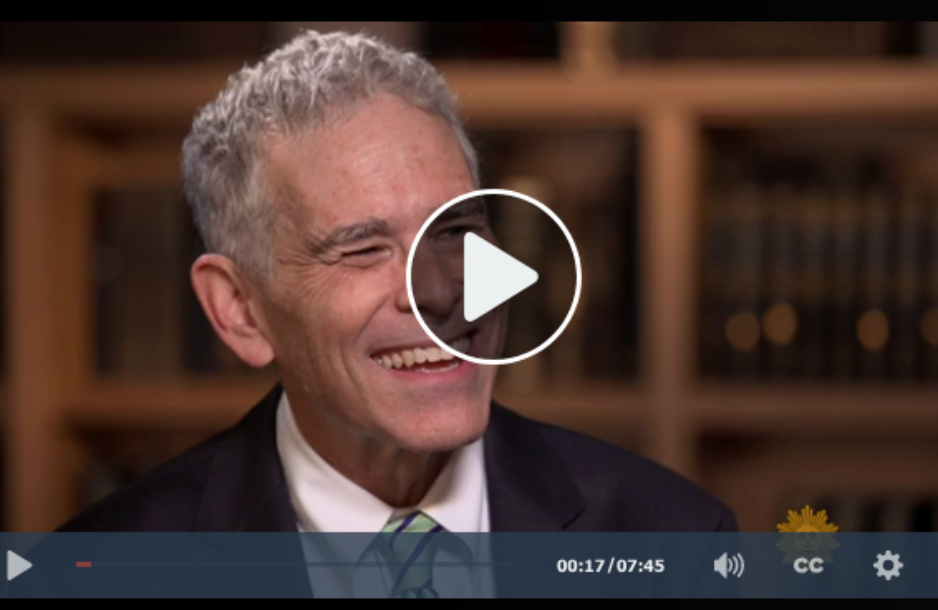Law, Economics, and Business
Where law intersects with business and economics, the most important capital is intellectual. With its renowned faculty and a global, entrepreneurial perspective that melds cutting-edge theory with pragmatic business experience—in the heart of Silicon Valley, at the edge of the Pacific Rim—Stanford Law has the capital and energy to bring this legal frontier to life for students.
A Leading Intellectual Community
With its renowned faculty and a global, entrepreneurial perspective that melds cutting-edge theory with pragmatic business experience—in the heart of Silicon Valley, at the edge of the Pacific Rim, in proximity to Latin America—Stanford Law has the capital and energy to bring the intersection of law, economics, and business to life for students.
Access to excellence and innovation is a key strength of Stanford Law School’s law, economics, and business programs. With a faculty of leading scholars with expertise in a wide range of fields—tax law and policy, statistics, mathematics, bankruptcy, contract and commercial law, corporation and securities law, corporate governance, health law and policy, antitrust, intellectual property, and employment law—Stanford Law has long been known for its role in the law and economics movement, contributing influential scholarship and participating in real-world litigation.
The Stanford campus is home to more than 20 Nobel Laureates across disciplines—including eight in economics. The law school’s relationships with other top-ranked graduate and professional programs at Stanford, including the Graduate School of Business and the Economics Department and School of Engineering to the Hoover Institution and the Stanford Institute for Economic Policy Research, broaden and deepen the experience and generate learning opportunities that can’t be matched anywhere in the world.
Advantages of Location and an International Scope
Whether it’s discovering inside perspectives from corporate counsel, understanding the intricacies of a venture capital funding pitch, or deconstructing what it takes to privatize state-run industries in developing countries, Stanford is uniquely positioned in Silicon Valley’s culture of innovation, entrepreneurship, and imagination to provide students with access to advances in the field. The program’s extensive connections to Silicon Valley’s venture capital and private equity communities, active business litigation scene, and vigorous flow of international and technology-related deals provide firsthand opportunities to explore the nature of innovation and entrepreneurship.
Because business and entrepreneurship know no borders, the law, economics, and business programs encompass the international dealmaking and litigation now common to business and legal practice. Whether the issue is structuring an investment in China, funding a start-up in Israel, navigating antitrust issues in the European Union, expanding into India, or manufacturing in Mexico, these programs teach students to function in the rapidly changing international business environment. Stanford’s strengths in the global arena create synergies and opportunities around the world. For students, this means the chance to interact with leaders of international companies, global markets, and cross-border regulatory groups; summer assignments and externships anywhere in the world; and classes with lawyers and fellow students from Europe, Asia, Africa, and South America.
Hands-On Experience and the Chance to Learn by Doing
|
Stanford Law School’s programs in law, economics, and business transcend the teaching of specific skills and a defined body of knowledge to blend theory and practice, intensive classroom learning, and hands-on experience. Our goal is to inspire students who will go on to shape how law is practiced and how it adds value in an increasingly complex global marketplace. At Stanford Law, small, highly specialized courses provide students with access to leading faculty and the chance to work in multidisciplinary, problem-solving teams—just as they will in the workplace. With Stanford Law resources and the support of an open, entrepreneurial intellectual community, students interested in gaining a vital understanding of law, economics, and business will find many opportunities beyond the classroom. |
|
Gould Negotiation and Mediation ProgramLawyers who pursue careers at the intersection of law, economics, and business often find themselves in leadership positions that require negotiation skills. At Stanford Law, students have the unique opportunity to sharpen these skills through the Gould Negotiation and Mediation Program. |
Stanford Journal of Law, Business & FinanceStudents can work on a business law journal, join a vibrant student organization, organize a panel, develop a conference, customize an interdisciplinary degree or legal concentration—and pursue the career path of their dreams. |
Deals CourseHear advice, perspectives, and unforgettable inside stories from leading VCs, corporate counsel, and CEOs in Stanford Law’s landmark Deals class, taught by Professor Michael Klausner, an expert on corporations, banking, and nonprofits. |
BASES ProgramCollaborate and get advice from high-profile CEOs, engineers, and VCs on launching a business venture by competing on a BASES team as part of the largest student entrepreneur organization in the country. |
The John M. Olin Program
In addition to pursuing challenging courses, students can venture beyond traditional boundaries of legal education through the John M. Olin Program in Law and Economics, directed by A. Mitchell Polinsky, an economist who is one of the nation’s leading scholars in law and economics. The program’s Law and Economics Seminar is a focal point for research on the economic analysis of law, drawing distinguished scholars from around the world who share their perspectives with faculty and students from Stanford Law, the Stanford Economics Department, the Stanford Graduate School of Business, and the Hoover Institution.
Outstanding students may apply to the Olin Program for grants and fellowships to support research or the pursuit of a joint degree in law and economics.
LLM in Corporate Governance & Practice
Stanford Law offers students who earned their primary law degree outside the United States an opportunity to pursue a Master of Laws (LLM) in Corporate Governance & Practice or in International Economic Law, Business & Policy. This rigorous academic and professional training program provides exceptional foreign business and transactional lawyers with a broad base of expertise in such areas as accounting, bankruptcy, corporations, finance, mergers and acquisitions, securities, tax, and venture capital that they can use when they return to law practice, most often in their home countries. The LLM program also gives JD students the opportunity to engage with high-profile international law practitioners, including partners from top firms in Brazil, Chile, China, Japan, and Switzerland.
Innovation, Influence, and Impact through the Rock Center for Corporate Governance
Through a center focused on innovation and collaboration, Stanford Law is shaping the future of corporate governance. Stanford Law convenes some of the brightest minds in discussions that shape the frontier of law, economics, and business through the Arthur and Toni Rembe Rock Center for Corporate Governance at Stanford University. The center’s programs—and the leading researchers, legal practitioners, and business and policy experts they attract—provide a broad range of learning opportunities for students pursuing a future in any field affected by law, economics, and business.
Excellence in Executive Education
In addition to shaping the future of law students, Stanford Law offers innovative executive education programs that blend law, business, policy, and conflict resolution. Instructors include faculty from Stanford Law as well as the Stanford Graduate School of Business and the broader university, as well as members of the judicial, policymaking, corporate, venture capital, and mediation communities who share their expertise and discuss solutions to the challenges they face every day.
learn more

Clinic
Students provide governance advice and documents, draft contract and management materials, and analyze operating programs and contractual arrangements for established Northern California nonprofit organizations.
learn more about the Organizations and Transactions ClinicStudent Organizations & Student Journals
- Corporate Law Association
- JD/MBA Club
- SLS Entrepreneurship Club
- Stanford Law and Business Association (SLBA)
- Stanford Tax Club
- Stanford Environmental Law Journal (SELJ)
- Stanford Journal of International Law (SJIL)
- Stanford Journal of Law, Business & Finance (SJLBF)
- Stanford Law & Policy Review (SLPR)
Degrees
Joint Degrees
Law and BusinessLaw and EconomicsLaw and Management Science and EngineeringLaw and Public Policy
Advanced Degrees for International Students
In the News
The Year of the Music Licensing Legal Wars
The Verge
“I would say there was really a battle going on between Hollywood and Silicon Valley,” recalled Mark Lemley, a law professor at Stanford and longtime litigator who, in 2003, won the Grokster case in the lower court. “And you saw it in lots of different places.”
Read More






























